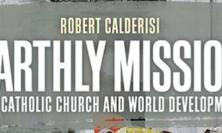Patrick Riordan opens the final chapter of Global Ethics and Global Common Goods with the striking statement:
Some readers will expect by the end of this work to be presented with a list of global common goods, goods that should be the focus of cooperative attention, or goods that should be pursued by everyone. They will be disappointed. There can be no such list.
Part of the reason for this is that Riordan is not engaged in a Benthamesque project of pruning ethics to a set of simple variables in order to generate rules for public decision-making. Rather he is concerned to explore the subtleties of ‘good’, ‘value’, ‘reason’ and ‘desire’ against the whole field of collective human activity. This is primarily a descriptive project, explicitly in the style of Aristotle, whose Politics and Ethics explain how political and ethical systems work in the pursuit of common goals, rather than prescribing from first principles how such systems ought to work or what those common goals ought to be. Identifying something as a common good will not necessarily oblige everyone to act in a specified way. Nevertheless for those who do come to recognise it, there may well now be compelling reasons to choose, protect or at least act in a way that respects that good.
So this book explores the negotiating territory for concerned human beings to identify and work for global common goods. This means that much of its task is a ground-clearing exercise. Without such spadework, conversations between concerned people who do not use common good language and concerned people who do (among them followers of Catholic Social Teaching) are problematic. This is because for many brought up in the dominant traditions of English-speaking political thought there are significant assumptions which call into question both the project of identifying common goods and the possibility of global collaboration.
The early chapters discuss the relationship between common good language and modern economic categories of goods (public, private, club etc.). They go on to provide definitions and examples, models for the later discussion of global common goods. But it is illuminating to highlight the areas of discussion where Riordan presents with care and subtlety some of those conceptual obstacles to the very idea of a ‘common good’.
Now one fear from the libertarian political tradition is that if we identify something as a common good, we thereby impose obligations on everyone to promote that good. Surely that will violate the legitimate freedoms of others? However, this is not necessarily so. For instance, I can recognise something as a good (opera), and that gives me a reason to support it, but does not oblige me to do so. I may of course be led from never thinking about opera to realising its value in human culture, so that not only do I have a reason to support it, but I find that reason (for me) sufficient to make me do something about it. However, that does not have to happen. We can see that, in spite of the libertarian fears, identifying a good, or a common good, does not illegitimately constrain my rational freedom.
That concern about freedom is bound up with another important strand of discussion about human motivation which runs through the literature. On one influential understanding of liberty and desire that has been derived from Hume, only the fact that we desire something gives us reason for action. If this were true, then where we felt no desire we would have no reason to act and thus identifying goods as common goods would be pointless. However, John Searle (among others) has challenged this belief. He suggests we can have motivating reasons to act that are not dependent on our desires. This becomes apparent when we look at human motivation for action when it is embedded in freely chosen social activity. Because I have freely chosen to engage in the socially structured activity of buying a round of beer at the pub, I have a motivating reason to pay the barman, irrespective of how I feel about the ridiculous price of beer in central London. It seems we can have reasons for action independent of our desires.
Riordan explores Searle’s account of the creation of such reason-giving systems through ‘Status function declaration’. Because we collectively assign (and continuously reaffirm) a status to a certain set of actions or objects, those things can give us reasons for acting in particular ways (banks, schools, the local mayor). Value-laden institutions emerge by such explicit or implicit social agreement and give us reasons for acting independently of our desires. Riordan will use Searle’s account as a conceptual basis for reflecting on global institutions and values, and the reasons nations might have for promoting and supporting them.
It is helpful to notice that this account of motivating reasons (as opposed to desires) presumes the social nature of human activity and the structures in which it is embedded. From this we can see two crucially different philosophical approaches to imagining political life. One starts from the freely choosing individual with the range of desires that they happen to have and tries to create a political order that will, as far as possible, allow a collection of such individuals to exercise their autonomy of choice. The other recognises that we are intrinsically social beings and our beliefs, desires, motivations and reasons cannot be considered independently of the social context that is there before we are, and in which we act.
The first approach can have benign results: it underpins schools of thought which seek to maximise the happiness of all, promote human rights and define justice as fairness. However, when allied with a belief that the only basis for human cooperation is rational self-interest, it can yield market fundamentalism or logical barriers to any ideal of global cooperation. The social approach does not necessarily negate those other things, but it starts from a much richer, non-reductive understanding of human experience. On that understanding we learn within a social framework to recognise a multiplicity of shared goals and shared values. Thus rational self-interest is only one of the ways that we engage with each other.
The social approach of course runs through this book and explicitly draws its inspiration from Aristotle’s description of human life and its purposes in the context of the city. When we correctly identify goods and pursue them, these lead to our flourishing as individuals. When we do so together, this leads to the flourishing of the whole city. Many of the goods we enjoy, and which we need to flourish, we do not even notice, from street-lighting to a functioning legal system to a water supply. But we can be made aware of them. Not all of us will pursue every good, but we will at least respect those things whose value we recognise. Importantly, among the goods that we share will be not just objects or institutions, but common values. Those are the shared meanings that shape our reasoning as fellow citizens and enable us to work with one another for common ends.
It is just that shared horizon of meaning that enables a community of many people to pursue their own freely chosen pathways towards common goals.
Riordan, building on Searle, illustrates this with the analogy of a university. The individuals within it will have very different sets of priorities (the classics professor, the administrator, the research scientist, the vice-chancellor). Nevertheless there will be shared commitment to common goals and shared assumptions about what matters on the way there. This is how individuals can work for their own flourishing and at the same time consciously contribute to the flourishing of the whole – what Aristotle would have called the supreme (or most sovereign) good.
How far can this model, of individual concerns consciously harmonised and harnessed for common goals, be extended? It makes sense in the village, the string quartet, the university and possibly the nation but can it embrace the world? Are there common, global goods that give us a reason to modify our own modes of flourishing for the sake of a supreme good of global flourishing? Once again there are some conceptual barriers to be considered.
Roger Scruton, for example, is concerned particularly with environmental issues and the problems of motivation to action. He suggests in the spirit of a social, Aristotelian model, that there can be no collective activity towards common goals without a shared sense of ‘we’. Scruton believes, however, that such a sense of ‘we’ can best be found in a local community and certainly cannot be achieved beyond the bounds of the nation state. This is why the prescriptions of remote international bodies have so little purchase on the conscience of individuals. If his judgment is correct, then the term ‘global common good’ is indeed meaningless, because there never can be a common purpose or common horizon of value across borders.
One argument against this bleak view is the set of actual examples of international co-operation that have yielded results beneficial to all, from the regulation of oil tanker construction to the eradication of smallpox and protection of the ozone layer. De facto, collaboration between nations or international organisations for global common goods has taken place. Furthermore, however, it seems that there can be a global ‘we’. This ‘we’ is described as follows:
Both those who identify themselves as victims or at least vulnerable in their life, relationships and work, and also those who unwittingly find themselves complicit in structures and relationships that impact negatively on others.
Those who share such awareness of global interconnection and responsibility will indeed be able to formulate common goals across national boundaries and commit to collective action. As with smaller scale goods, the ‘we’ does not have to include everyone in the world nor do the beneficiaries of the common goals achieved have to be a part of the ‘we’. ‘We’ just have to recognise each other, share our purposes and commit to our part in action.
Another conceptual objection to global cooperation is rooted in the political and moral pessimism of Thomas Hobbes. It is the notion that meaningful obligation to promote common goals can only arise within the framework of a nation state.
Individuals left to their own devices will work for themselves and against each other. The only way that they can be made to work together without harming each other is under the threat of sanctions. The task of the state is to provide just such sanctions. However, when it comes to competition between nation states, there is no higher instance to enforce good or co-operative behaviour. Therefore any talk of international obligations is meaningless. It is only ever rational for states to act for themselves against everyone else.
The best-known version of game theory, the so-called prisoners’ dilemma, suggests that two parties acting out of rational self-interest in a competitive situation will end up taking the options in which both sides lose. This is not encouraging for international relations. However, Riordan’s helpful discussion of game theory moves beyond this pessimism. There are alternative set-ups. For instance, a rational choice can lead one person to bear a major cost alone for the benefit of all (including themselves). Take the case of a group of tourists kidnapped and held to ransom. They will be released if they pay $10, 000. One person has $9,000 dollars and the others only have $1,000 between them. Again it is rational for two people to collaborate in an activity which benefits each of them, but which neither could achieve alone.
These alternative models, without requiring nation states to be selfless, suggest ways in which even rational self-interest can lead to collaborative action and occasionally a greater sacrifice by some in the pursuit of a vital common interest.
But there is also an important suggestion of ways in which self-interest need not be the only motivator at the international level. States, like individuals, can have reasons for complying with an international agreement that are independent of their immediate interests. They may, for instance be committed to a human rights regime, and that gives them a reason to take on the social and economic burden of protecting refugees. Here Searle’s ‘status function declarations’ come into play once more, helping us to extend our reasons for acting through shared assent to a common international framework.
The author, as we have seen, does not wish to impose any one set of global common goods on his readers and then tell them what to do about them. However, in keeping with his project, he does discuss a wide range of candidates for the description in his final chapters. There is an interesting account of Rawls’ theory of the ‘Law of Peoples’. Rawls extends his argument from A Theory of Justice in a surprising way to propose the sort of framework of international rights and duties that might be reasonably agreed between ‘decent nations’.
Riordan further discusses global justice and global human rights as two potential candidates for the status of global common goods. In each case he points up, alongside the positives, the fragilities and incompleteness of these concepts as they currently stand in political thought. For global justice, there is the question of what justice means where there is no supreme instance (as there is in a nation) to enforce it. How then could we evolve a collaborative international justice system without creating a global super-state? In the case of human rights there are conceptual challenges to the set of universal rights that has been declared. Riordan points out that these rights have been identified but not grounded. If they are not grounded in some appropriate way in a broad human anthropology, then they are open to the challenge of being arbitrary prescriptions forged in a specific political and social context and foisted on the rest of the world. Suddenly we find that things we thought we were all clear about are actually much less secure than we realised. We are not actually there yet – though we may be on the way.
Through all the discussions it emerges that ‘common good’ is not so much a label for something we already have as an arrow that points us to where we need to look. It refers to things that are still waiting to be discovered and clarified in a process of collective negotiation. The ‘we’ to whom the book is addressed can recognise that the sort of justice we appreciate locally would benefit us all globally. We would have a reason now for collaborating in efforts to promote such justice, even if we do not yet know exactly what such a global system would look like. Similarly that ‘we’ would have a reason for supporting work in promoting and interpreting human rights globally, even if the current expression of those rights is not yet adequate. This, then, is the positive message of the book. It is through just such engagement that we evolve and strengthen the web of shared values. This is how global community emerges, how its common goods become manifest and how its members find reasons to act in common for the flourishing of all.
The reviewer, John Moffatt SJ, assists in the Hurtado Jesuit Centre in Wapping, East London.






